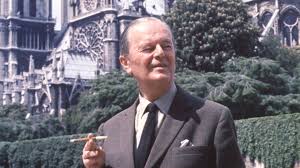Not seeing the political/economic forest for the trees
Chris Dillow is an economics writer at Investors Chronicle. He blogs at Stumbling and Mumbling, and is the author of New Labour and the End of Politics.
Cross-posted from Chris’s website Stumbling and Mumbling
Here are three recent items that are connected:
– Morgan McSweeney thinks that abolishing the two child limit on universal credit wouldn’t give Labour “enough political capital with voters.”
– Nick Clegg is criticised for saying that requiring tech companies to observe copyright laws would “basically kill” the AI industry. If burglars had to ask homeowners permission, his critics say, this would kill the housebreaking industry.
– People are mocking Jordan Peterson for his incoherence in front of a bunch of (albeit smart) young people.
The connection here is that all three are examples of systemic problems and yet people focus instead on criticising specific individuals.
For example, there have always been idiots and charlatans, so there’s nothing notable about Peterson. But why is he more famous than, say, Alasdair MacIntyre or (to cite just a few younger people) Brian Klaas, Cory Doctorow, Daniel Chandler or Matt McManus? The answer lies in selection effects. Many of those claiming to be public intellectuals are selected not for merit but for something else.
It’s hard to say what this something else is. I don’t think it is mere ideology; many intelligent conservatives aren’t famous*. What is the case, though, is that there has been a decline in the standard of public intellectuals: on the iPlayer you can see Kenneth Clark, Jacob Bronowski and AJP Taylor; compare them to many of their modern equivalents. Or compare Laura Kuenssberg to Brian Walden. Peterson’s status as a prominent “intellectual” is a symptom of a systemic problem.
So too are Clegg’s remarks. The fact that capitalism is founded upon theft is of course no surprise. Capital, wrote Marx, comes into the world “dripping from head to foot, from every pore, with blood and dirt.” And profits are, from a Marxian point of view, a form of theft – the extraction of surplus labour. Clegg is thus merely blurting out a truth.
Two truths, in fact, because he’s channelling another of Marx’s insights:
At a certain stage of development, the material productive forces of society come into conflict with the existing relations of production or – this merely expresses the same thing in legal terms – with the property relations within the framework of which they have operated hitherto.
The question is: how is this conflict to be resolved? Do we do so by restricting creators’ property rights? Or could we do so by restricting those of tech oligarchs through some form of socialized AI development? Obviously, I don’t know. What I do know is that we have here a systemic problem, requiring systemic analysis: is it possible to reconcile a common sense conception of justice with technical progress?
McSweeney also raises a systemic question. The point here is that cutting child (and adult!) poverty is not just morally right but also very possibly economically correct too because fewer poor children today mean fewer low-earners or criminals in the future. If McSweeney is right** that there are few votes in this, it tells us something important about our political system and culture – that it mitigates against sensible policy. Sam Freedman is bang right:
It’s a pretty dismal reflection on our politics that a policy as bad as the two child limit was introduced in the first place and has survived for a decade.
But what exactly is it reflecting? It might be the power of our reactionary oligarchic media. Or it might be that the “Treasury brain” disease has spread beyond Whitehall. Or maybe endogenous ideological formation has caused people to resign themselves to poverty and injustice. Or maybe politicians wrongly take public opinion as a datum rather than as something that can be changed by campaigning or by economic change. Or maybe something else.
Whatever the answer, we need to think about politics and economics as systems, and very often systems which select for some things and not others: why do they select for charlatans and against good policies? Is technical progress compatible with justice or not? And so on.
Instead, too many people – even good clever ones – don’t do this. In confining themselves to criticising McSweeney, Clegg or Peterson as individuals they are engaging in what I’ve called schoolteacher politics, focusing upon individual error rather than systemic processes. But as schoolteachers used to tell me, “must do better.”
* Jesse Norman for one; his novel, The Winding Stair, is very good indeed.
** Of course, McSweeney might be wrong. But that merely raises another systemic problem: how can it be that a man who is wrong about his whole job – how to get Labour re-elected – can become so powerful?



Be the first to comment